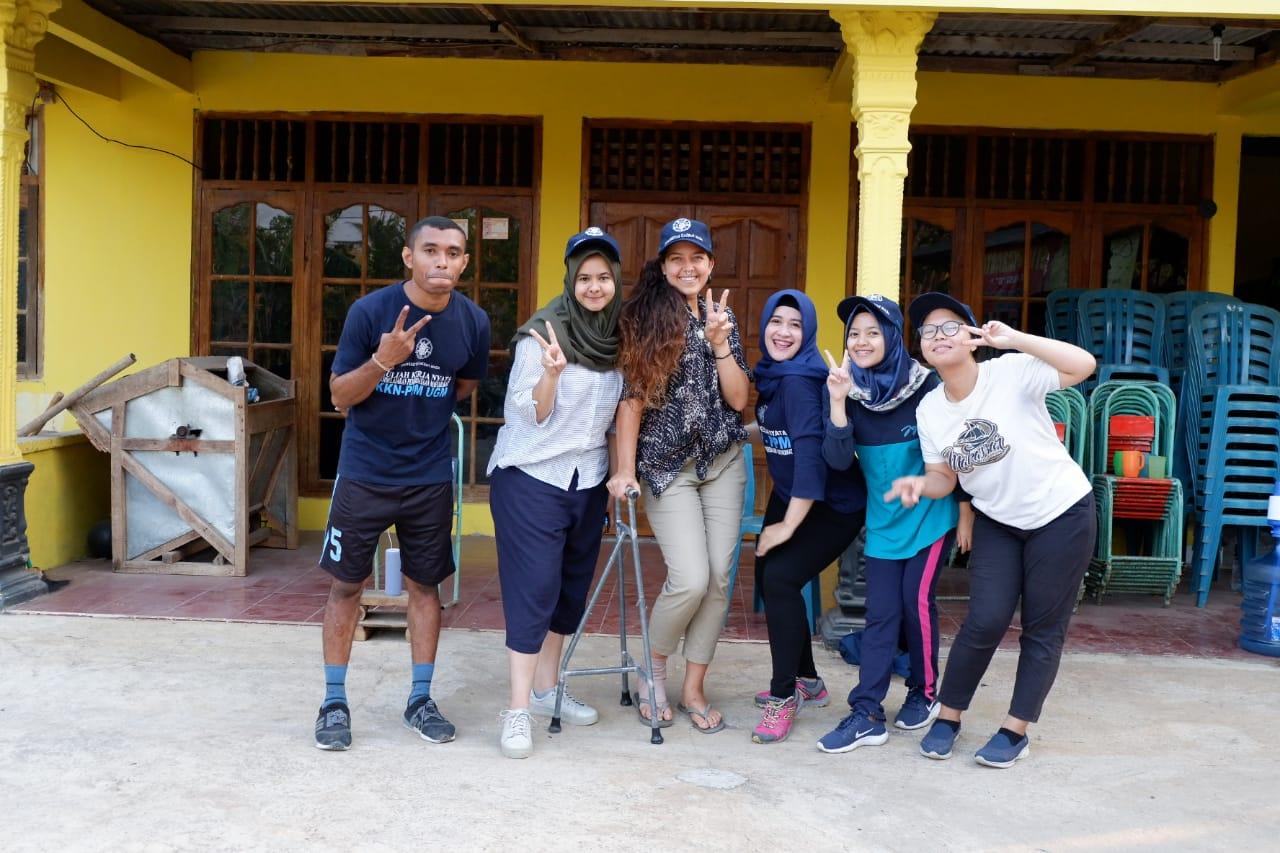Student experience - Katherine Keane

Katherine Keane is a New Colombo Plan mobility grant recipient who undertook the Development Studies Immersion Program at Gadjah Mada University. This story was originally posted on the ACICIS website.
Q: Why did you decide to undertake ACICIS’ Development Studies Immersion Program?
I have always wanted to incorporate a semester or year abroad as a part of my University Study Plan. Having spent some time in East Java, Lombok and Bali already, I was interested to spend more time with our closest neighbour and explore Indonesia’s potential as a career pathway post-graduation. The Development Studies Immersion Program (DSIP) with ACICIS facilitated an opportunity to learn Indonesian language and the country’s development issues, as well as experience University life abroad. Further, the DSIP offered me a unique opportunity to apply theoretical aspects of my International Development major at the University of Adelaide as part of a hands-on, culturally immersive experience.
Q: Did you receive a New Colombo Plan Mobility Grant? If so, how did this contribute to your experience in Indonesia?
I received the New Colombo Plan (NCP) Mobility Grant to the sum of $5000 AUD. This grant was crucial in allowing me to take part in this program. While Indonesia is certainly a cheap place to live, flights, accommodation and insurance costs add up. Going into this program on the back of a full-time study program, receiving the NCP Mobility Grant really took the pressure off me financially and allowed me to stay focused on my studies.
Q: How will the Development Studies Immersion Program influence your future career or study?
Participating in the DSIP has confirmed just how much I love Indonesia and want to work and live here. While Indonesia has made significant gains in its development over the last 20 years, opportunities for the country’s development here are endless. The DSIP has given me a snapshot of many facets of the country’s development, which has therefore helped to shape my interest in different areas.
Q: How does development in Indonesia differ to what you’ve seen before?
It’s been less about development differing from what I’ve seen before, and more about actually seeing what I’ve read or written about before. For me, studying development at my home University has been about being critical of the impact of institutions on the lives of real people. This has been an amazing opportunity to witness more of the positives of development, particularly the notable impacts of grassroots-based development and their effect on the immediate community, rather than just the impact of well-known global institutions.
Q: What do you like to do in your spare time in Yogyakarta?
In all honesty, I have dedicated a lot of time to eating. If you’re someone who loves to try new foods then you’ll be very busy in Indonesia, as it’s somewhat impossible to try everything. Other than eating – or maybe because of the time spent eating – I also joined a gym. There are also a LOT of cultural events on in Yogyakarta. The art, fashion and music scene here is awesome and the festivals I went to were very, very cool.
Q: Are you undertaking an internship/student community service – KKN – while in Indonesia?
I am undertaking the student community service (KKN) stream while in Indonesia. I’m sure that the experience differs for everyone, but I will warn that it is probably one of the most challenging things I’ve ever done.
The KKN essentially a 2-month rural placement in a village in the Yogyakarta region. I’ve been living in what everyone tells me is a very ‘traditional’ Javanese house (possibly a euphemism for a brick barn), with six other Indonesian students from UGM. I’ve been designing my own development programs here, which correspond and contribute to the overarching theme of the KKN unit, whilst living intimately (I share a bed in a very small room with 3 other female students) with the community.
Day to day life for me here is generally full of confusion and reliance on others for clarification. Therefore, it’s definitely not for the faint of heart, or for those who are used to being fiercely independent. In addition to this, language difficulties certainly present their own challenges.
However, this said, if you have the tenacity to learn the language, and can learn to relinquish control, adapt and just get used to going with it, the rewards from this extremely culturally immersive experience are immeasurable.
It’s the hardest thing I’ve done, but I wouldn’t change a thing. I’m totally in awe with this experience.
Q: What is your favourite Indonesian food? Where is your favourite place to eat?
Oh…there is no SINGLE favourite food when it comes to Indonesia! Pecel was my go to, and for the best (and western portion size!) try Bu Bagyo. For dining out, you must try Waroeng SS or Jejamuran (heaps of vegetarian options).
For sweet and refreshing, it has to be Es Teler Special from ‘Es Teler Mendunia’. And don’t go past the sugar/peanut filled boiled rice flour balls known as Mochi. Mochi can usually be found in a ‘bake sale’-style-table near the INCULS building at UGM.
Q: Favourite Indonesian word/phrase?
“Sudah mandi?” – Have you bathed? Get used to it. You’ll be asked it a lot. Also, asking for your tea ‘tawar’ will help you to avoid diabetes.
Q: What places in Indonesia have you visited during your semester so far?
There is a lot to explore in Yogyakarta city itself. Outside of this, I’ve explored the Gunung Kidul region, which is home to many beaches and caves. After my development placement, I’m planning a diving trip in North Sulawesi.
